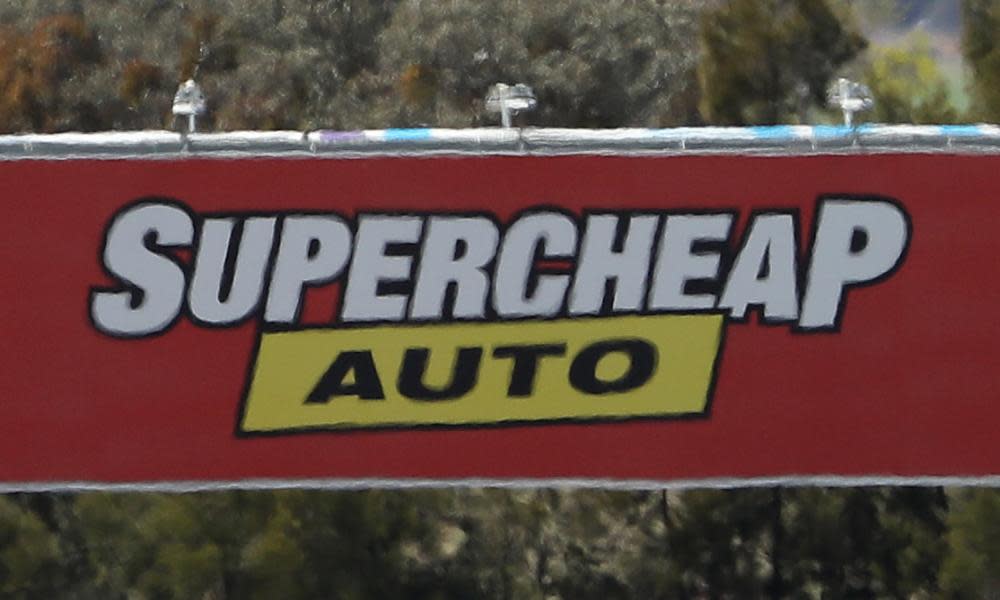Super Retail Group returns $1.7m from jobkeeper amid calls for Harvey Norman to follow suit

The federal treasurer, Josh Frydenberg, has welcomed Super Retail Group’s decision to voluntarily return $1.7m of wage subsidies to the Australian government, while Labor has called for other rebounding retailers to follow its lead.
Super Retail Group – the owner of brands including Supercheap Auto, Rebel and Macpac – announced the decision on Monday, as it revealed a record $170m net profit after tax.
The company joins Toyota in foregoing jobkeeper payments despite being eligible, after the carmaker returned $18m to the federal government.
Labor’s shadow assistant minister for treasury, Andrew Leigh, has called on Harvey Norman and Solomon Lew’s Premier Investments, owner of retails chains Smiggle, Just Jeans, Dotti and Portmans, to return their jobkeeper payments.
Related: Woman wins two-year battle with Centrelink after it demanded she pay back $27,000
On Monday Frydenberg said that while Super Retail Group and Toyota were under “no legal obligation to repay jobseeker … if they do so, I’m not going to say no”.
“That’s additional money flowing into government coffers and it’s appreciated,” the treasurer told reporters in Melbourne. “They don’t have obligation and it’s a matter for individual businesses to do as they see fit.”
Frydenberg said the government had been “very clear” the jobkeeper program was legislated to end in March and it intended to follow through with that end date because “many businesses no longer need jobkeeper as their customers have come back through the doors”.
Frydenberg noted that $140bn of federal support has been delivered out of $260bn committed, and argued there was “light at the end of the tunnel” after a 23% increase in job vacancies in November.
The jobkeeper wage subsidy program offered companies $1,500 a fortnight to pass on to employees to keep them in their jobs.
In the first six months from March, companies needed to show only a one-off revenue downturn to qualify, a bar many retailers cleared as coronavirus restrictions shut down large sections of the Australian economy and society.
Eligibility rules were changed in September requiring companies to requalify for the payment every quarter, but many companies that went on to post profits and pay dividends had already received the payments.
Leigh told Guardian Australia that Premier Investments had received an estimated $45m in jobkeeper payments, but had gone on to pay a “multi-million bonus to its chief executive and deliver a stonking dividend to shareholders”.
Premier gave shareholders a 70c dividend per share and has told investors it expects earnings before interest and tax of between $221m and $233m in the six months to 30 January.
“Premier has given every indication it is rolling in clover … if anyone should be paying back jobkeeper, it’s Premier,” Leigh said.
“I’m not making a legal argument, I’m making a moral argument. As a matter of law, they’ve claimed jobkeeper – but as matter of ethics I think it’s indefensible.”
Leigh said Harvey Norman had also declared a “profit bonanza” and “doesn’t appear to need taxpayer support in the same way that 1 million Australians do right now as they face the prospect of jobseeker [unemployment benefits] being cut”.
Leigh said Super Retail Group and Toyota had “shown that their corporate ethics are in line with most Australians – they’ve made decisions they didn’t have to”.
“I think they’ll be rewarded by more loyal customers, and the appreciation of millions of Australians for doing the right thing.”
On Monday JB Hi-Fi, which did not claim jobkeeper, announced that it expected group net profit for the year ending June to rise 20% to 22% to between $300m and $305m.
Myer, which received $93m in jobkeeper but still posted a loss of $172m for the year to 25 July, will announce its results shortly.
In September Leigh targeted shoe retailer Accent Group for receiving $13m in jobkeeper and paying its CEO, Daniel Agostinelli, a $1.2m bonus.
The head of the Business Council of Australia, Jennifer Westacott, has said companies receiving jobkeeper wage subsidies should not give executive bonuses and should think twice before paying dividends.
Guardian Australia contacted Premier Investments and Harvey Norman for comment.

 Yahoo Movies
Yahoo Movies 
